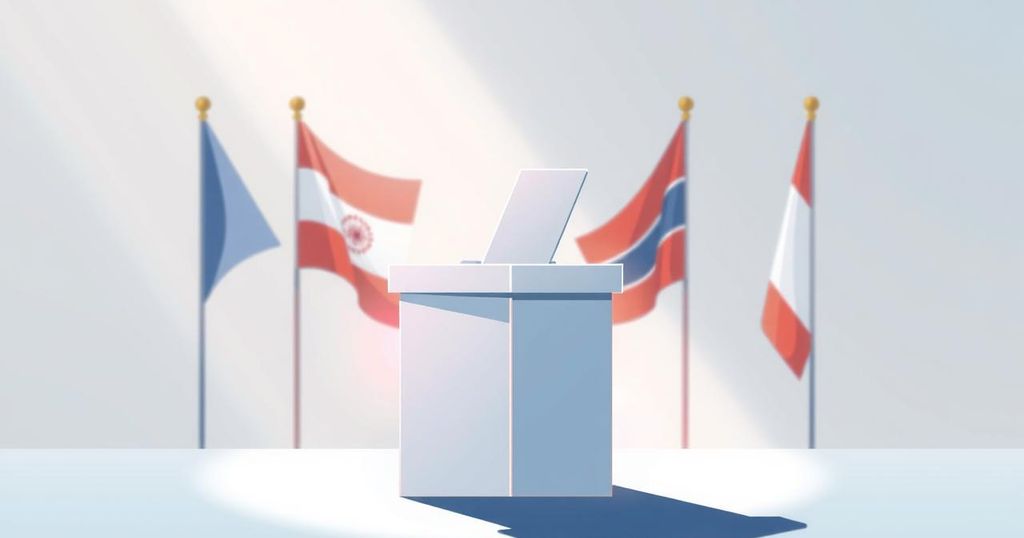WEF Report Highlights Armed Conflict, Misinformation, and Environmental Risks
A recent Global Risks Report by the World Economic Forum emphasizes armed conflict, misinformation, and environmental challenges as leading global concerns. The report outlines the grave outlook for 2025, highlighting state-based conflicts, misinformation’s impact on societal trust, and severe environmental risks expected over the coming decade. A call for renewed collaboration among leaders is crucial to addressing these complexities and establishing a sustainable future.
The World Economic Forum (WEF) has identified armed conflict, misinformation, and environmental risks as primary global concerns in its latest Global Risks Report. Released just ahead of the WEF’s annual meeting in Davos, the report is based on a survey of over 900 leaders from various sectors conducted in late 2024, which highlights severe challenges facing the world today. The findings depict a deeply divided global landscape reminiscent of the Cold War era, marked by escalating conflicts and extreme weather influenced by climate change.
According to the surveyed leaders, state-based armed conflict ranks as the foremost immediate risk projected for 2025, heavily influenced by geopolitical tensions from events like Russia’s invasion of Ukraine as well as conflicts in the Middle East and Sudan. The report underscores that U.S. policy responses under the new Trump administration could either escalate these conflicts or promote some stability, depending on decisions regarding military and financial support.
In addition to state-based conflicts, the report highlights extreme weather events and misinformation as significant short-term risks. The wave of misinformation, increasingly intertwined with AI capabilities, threatens societal cohesion by eroding trust and deepening divisions across nations. The survey also identifies cyber-espionage, societal polarization, and pollution as pressing concerns for the near future.
Longer-term, environmental risks dominate the scenario, particularly extreme weather events and biodiversity loss, which have seen dramatic increases in their projected impact over the next decade. The report indicates a growing consensus across diverse groups on extreme weather’s significant threat, while pollution emerges as a pressing concern for younger demographics under 30 years.
The WEF cautions that a fragmented global order is likely to arise amid rising geopolitical tensions, straining multilateral cooperation. To counter these challenges, the WEF emphasizes the need for leaders to enhance dialogue, rebuild trust, and foster global collaboration for a sustainable future. In light of these complexities, Mirek Dušek, managing director of WEF, articulates the crucial choice leaders face: to cultivate resilience through collaboration or to remain vulnerable to geopolitical volatility.
The key themes emerging from the WEF’s Global Risks Report reflect a contemporary analysis of global concerns. With global leaders’ insights, the report spotlights threats stemming from armed conflicts, misinformation fueled by technological advancements, and serious environmental degradation. Understanding these risks offers valuable context for the WEF’s call for cooperation amidst escalating tensions as world leaders convene to address these pressing issues.
The WEF’s Global Risks Report highlights the interconnectedness of armed conflict, misinformation, and environmental crises as critical challenges shaping the global landscape. The contrasting short-term and long-term risks necessitate immediate action to promote collaboration among world leaders. By addressing these risks proactively, there is potential for fostering resilience and sustainability in an increasingly fragmented world.
Original Source: healthpolicy-watch.news




Post Comment